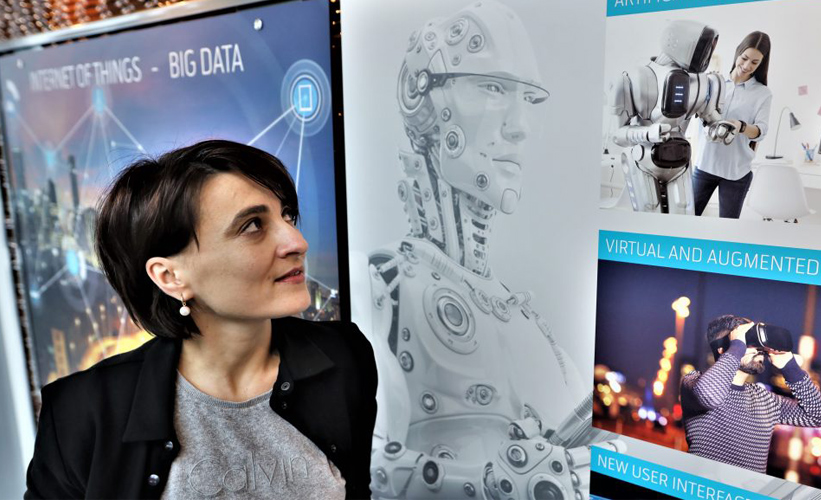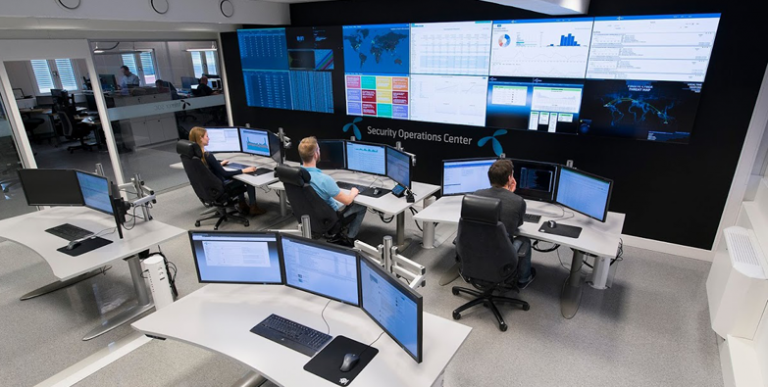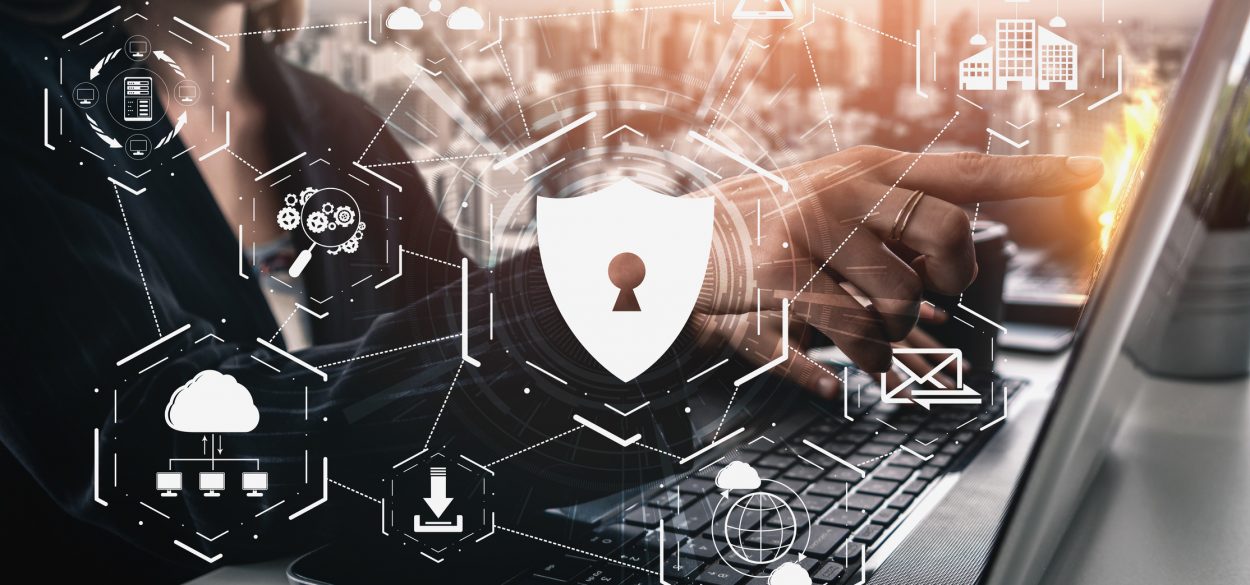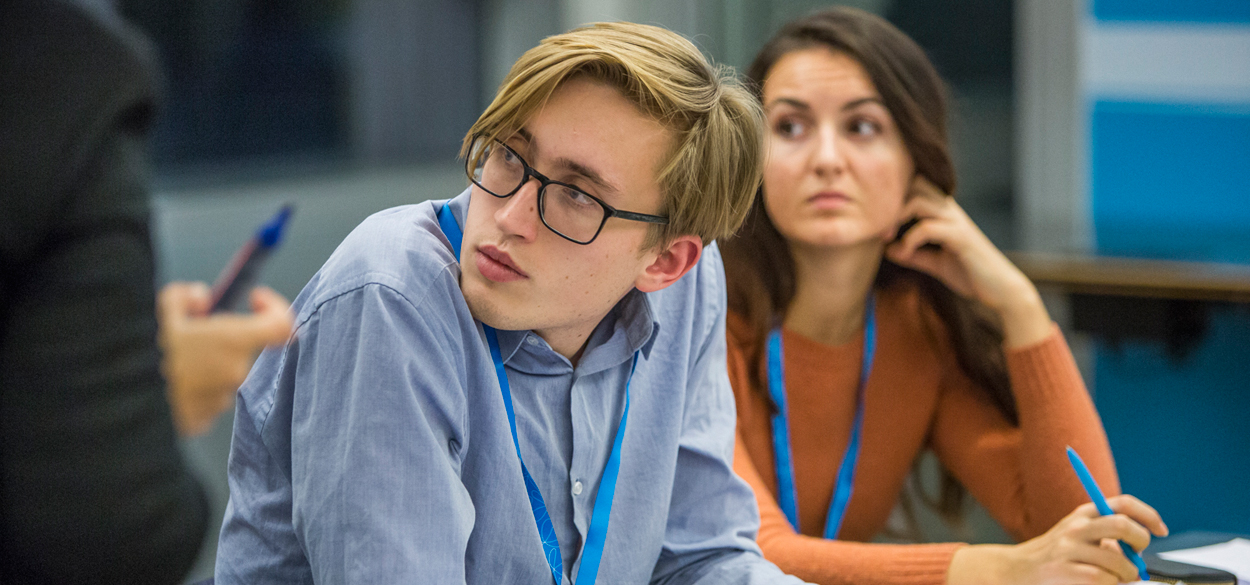Analytics & AI

Telenor is focused on basic and applied machine learning research, looking into how data and analytics solutions can help automate our network operations, digitalise customer interactions and create new growth areas beyond connectivity.
Our data scientists and machine learning (ML) experts are working with network and customer data (speech, text, images) and are developing algorithms to help improve customer care, make better marketing, sales, and network decisions and enable automation. The purpose of our research is to help Telenor realise its data-driven company vision and to prepare for the future through building cutting edge AI/ML research in areas of high relevance to telecom operators.
The Analytics & AI team participates in the Norwegian Research Council and EU funded research projects along with partners, co-supervises Master, PhD and post-doctoral students, and does active research in the Norwegian Open AI-Lab , where Telenor is a founding partner. We also contribute to building Telenor’s position within areas of big data for social good and responsible AI, both in Europe and Asia.
Our projects
Big Data for Social Good
Big Data for Social Good (BDSG) has arisen from an emerging realization that Telecom operators possess huge amounts of data and knowledge that can be used for development purposes. While the data has existed for many years, efforts to systematically use the data for societal good and socioeconomic improvement have been lacking. With the advancement of data science, analytics and machine learning, systematic analysis and use of telecom data became possible and can be of great use for societal development – for example helping to prevent the spread of infectious diseases, preventing environmental disasters and fighting climate change.
Telenor Group has been involved in BD4SG projects across different geographies since 2013. Among our key projects are predicting the spread of dengue fever in Pakistan and drug-resistant malaria in Bangladesh by using anonymised, aggregated mobile data. The work can be further explored in the following publications.
Network AI
Telenor Group has set up thousands of radio units to provide coverage in its operating countries. Our radio network must seamlessly serve millions of customers and cover large and sometimes challenging areas, such as indoors, or along roads, railways and tunnels. Telenor Research is investigating how data and analytics solutions can help us configure and run those radios in an efficient way, ultimately leading to automation, while also ensuring that customers have the best network experience. As our “raw” material, we use billions of data points generated from logs in our networks and deploy modern analytics and AI techniques for enabling better decisions.
Green Radio
Our goal is to reduce power consumption and CO2 emissions in radio networks through empowering data and modern analytics techniques. With this, we contribute to Telenor Group's ambition of becoming carbon neutral by 2030.
Power consumed by the cell tower radios is the main contributor to telecom operators' CO2 footprint. In the Green Radio project, we have developed algorithms that use data to profile and predict load for each of the thousands of individual radio units in a network. This prediction is then used to automatically put radios in low-power ‘sleep-mode’ in areas where it is likely that there will be few customers using their phones. The job of the algorithm is to maximize power savings while ensuring that our customers do not suffer from low network capacity.
Find out more about how AI is greening mobile networks here
We have also worked closely with GSMA to promote the Green Radio approach, through telecom industry events such as the Mobile World Congress and through the launch of the Green Radio AI challenge.
Learn more about the GSMA Global AI challenge here
Machine Learning for Irregular Time Series
The “ Machine Learning for Irregular Time Series” ML4ITS) project is a four-year project funded by the Norwegian Research Council. Its primary goal is to address some of the core challenges for irregular time series data. By “irregular” we mean time series that come with all the complexities of real industrial business cases, such as multi-dimensional and noisy data, data with missing values, different sampling frequencies and similar.
Specifically, the project aims to develop methodology that handles irregular time series for the following tasks:
Forecasting: predicting the future values of the time series based on current/past data.
Imputation/denoising: creating “clean” data for missing or noisy data cases.
Anomaly detection and failure prediction: individuating when signals are unusual or indicating that a system is in a critical state.
Synthetic data creation: among its scopes, it addresses the need for creating datasets that preserve privacy.
The ML4ITS project relies on a multidisciplinary approach, which is why the ML4ITS consortium has been created with researchers from NTNU, Telenor, FinTech and IoT industries. The multiple applications of this project primarily concern the areas of IoT, Network automation and financial markets. Several Master and PhD students are contributing to the goals of the project. The project team participates in hackathons to get ideas for solving Telenor´s problems; among those is how to better detect failures in our network.
Customer-facing AI
Automatic speech recognition for conversational Norwegian
Speech and language technology, in particular automatic speech recognition (ASR), has contributed significantly to the general development of AI and ML. For Telenor, having access to high quality ASR in Norwegian implies that, given customer consent, we could automatically transcribe customer service phone conversations into text and ultimately create insights for better customer care decisions (e.g., classifying and predicting customer call intents). However, conversational and colloquial dialect speech pose major challenges for speech technology in general and for the Norwegian language in particular.
In 2020, Telenor Research delivered a proof of concept with a small sample of Telenor Norway’s customer service speech data, showing that it is possible to produce relatively good and meaningful transcriptions for challenging types of data. Our team continues to advise Telenor Norway on ASR and text analytics solutions for automating and improving the customer service.
In order to build our knowledge and explore future potential of speech and language technologies, Telenor researchers are participating in the Norwegian Research Council funded research project SCRIBE (2021-2025), together NTNU, Norwegian Open AI Lab, NRK and the National Library of Norway. This project aims to develop solutions for automatic machine transcription of Norwegian conversational speech in realistic recording conditions.
Beyondconnectivity
Tiny ML
The research domain of tiny machine learning focuses on the common theme that ubiquitous machine learning devices must be "tiny" from a computational, energy-requirement and cost and size perspective. In Telenor Research's TinyML project, we approach this along a wide spectrum that is defined by its two extremes:
The extreme "edge" side: The tiny device should be entirely self-sufficient, cheap, and require no infrastructure other than a very simple energy supply.
The extreme "cloud" side: The tiny device does nothing on its own, but relies on widespread low-latency, high-bandwidth 4G/5G coverage to offload all its computations to powerful cloud infrastructure.
These extremes will likely be of great importance as Telenor seeks to find its space in the AI/ML-fuelled future, and our research team is building knowledge on these technologies through theoretical work and testing (see more, TinyML technical demos.)
Clean Air
Air quality monitoring and decision support
Since 2018 Telenor, NTNU (Norwegian University of Science and Technology) and ITI-CERTH (Informatics and Telematics Institute, Centre for Research and Technology Hellas) have collaborated with the municipality of Trondheim (Norway) on the exploration of IoT sensors and AI technologies for improved air quality services. Our AI4IoT pilot on Air Quality Monitoring ran within the frame of the EU Horizon 2020 funded AI4EU project where Telenor takes part, with the goal to build a European AI on-demand platform. The services and data provided for this pilot will be part of showcasing use of this platform.
The pilot has focused on technologies for data capture, data quality, advanced analyses and visualizations, and has addressed the different parts of a value chain for a complete solution.
More details are available at the NTNU project website
Brainstorm 5G
A key concern for any mobile network operator is how to meet the ever-increasing network demands with an efficient use of resources. Customers expect improved bandwidths, lower latencies and increased availability, while the capital investments and operating costs should stay within reasonable levels. This challenge will only be exacerbated with the more demanding network use-cases expected with 5G.
We believe the utilization of AI/ML techniques will be part of the solution for operators. Sophisticated data analysis and forecasting methods can aid in network roll-outs and investment planning. Anomaly detection and root-cause analysis can help troubleshoot and resolve issues in the network. While we expect that these innovations will ultimately be delivered by the network equipment industry, it is also important for Telenor to develop our own insights into this – both for becoming a professional buyer of various intelligent solutions but also for exploring new growth opportunities.
That is why we in Telenor Research are exploring how AI methods such as reinforcement learning can be applied to various problems in the mobile technology stack. We conduct this research by using open-source network simulator ns-3. By gathering insights and building our knowledge about AI/ML use-cases in simulated mobile networks, we also become better prepared for an eventual deployment of similar technologies in our real networks.
Contact
Ieva Martinkenaite
Vice President Telenor Research
Telenor Group




